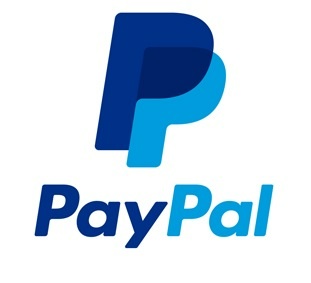Dwyer's forward guidance: divorces, hand slaps and triple dips

By Bloomberg
EBay Divorces PayPal EBay Inc. is spinning off PayPal into a separately traded company. Hedge-fund billionaire Carl Icahn had urged this course to create value for shareholders (he is EBay's seventh-largest shareholder) and allow PayPal to move faster once consolidation begins, as expected, in the fast-growing mobile payments industry. For months, EBay resisted but today threw in the towel. The stock market approved: EBay's shares rose as much as 8.8 percent on the news. PayPaL is being buffeted by new arrivals including Apple Pay, Google Wallet and AliPay, spun off from Alibaba Group Holding Ltd. PayPal itself may be in play now, Bloomberg News reports.
Ireland's Costly Hand Slap The European Commission warned Ireland that secret tax advantages it gave Apple Inc. could be illegal state aid. Ireland may have to collect billions in back taxes from Apple as a result. A formal investigation is now underway.
Unsportsmanlike The National Football League, already reeling from off-field scandals, took another hit when the U.S. Federal Communications Commission voted unanimously to end its 40-year rule enforcing television blackouts of games when stadiums don't sell out. Even though only two of 256 regular-season games were blocked out last season, the rule is highly unpopular with fans. The NFL and broadcasters can still pull the plug on a game; they just can't claim government support for it anymore.
Triple Dip? German unemployment rose unexpectedly and business confidence declined. Joblessness in the euro area is stuck at 11.5 percent. Europe, it seems, is on the verge of its third recession in six years, said White House economic adviser Jeffrey Zients. The region could even be on the verge of deflation: Inflation slowed to an annualized 0.3 percent in September, the lowest level in five years. The ECB meets Thursday in Naples, yet it isn't expected to announce new easing measures.
Blame It on Europe As Europe's automakers gather in Paris for the continent's biggest auto show, Ford Motor Co. cut its 2014 profit target because of lackluster European sales. Ford said it would probably lose $1.2 billion in Europe this year and $250 million next year. At the auto show, automakers are sporting new gadgetry to attract buyers, such as the Stop&Go Pilot on Daimler AG's Mercedes-Benz C-Class sedan. The car steers itself while matching the speed of the vehicle in front of it, including coming to a complete stop.
Six Out of 10 Economists Agree The University of Chicago's survey of prominent economists on major public-policy issues, called the Initiative on Global Markets, "is like Uber, for economists," writes Justin Wolfers of the NYT's Upshot. The poll provides easily digested summaries of what mainstream economists think and, like Uber, "the results are convenient, reliable and mobile-friendly." So do economists think regulators should restrict the prices, number of drivers or routes available to Uber and other ride-sharing services? In a word, no. Of the 40 economists who responded, 60 percent strongly agreed and 40 percent agreed that the competition is good for consumers. None disagreed. On this issue at least, maybe it's time to retire the two-handed economist caricature.
Markets Really Don't Like Rousseff Ahead of Sunday's first-round presidential election, Brazil's markets are choking on the possibility that President Dilma Rousseff could be re-elected, as polls now indicate. The stock market is in freefall, the currency is at a six-year low against the dollar, and yields on 10-year bonds are relatively high at 4.33 percent. State-owned oil company Petrobras is especially hurting: Its shares have plunged 20 percent this month. The election is likely to extend to an Oct. 26 runoff.
And Don't Forget
Leaders from some of the world's largest telecom and digital companies, like Vodafone and Netflix, will meet in Brussels tomorrow to discuss a new wave of regulation, including tougher online privacy rules, expected to come into force in Europe soon.
Institute for Supply Management reports on whether U.S. manufacturing expanded in September (it probably expanded to a three-year high).
U.K. Prime Minister David Cameron gives the keynote speech at the end of his Conservative Party's annual conference, setting out the platform for the 2015 general election.
France's government presents a draft budget for 2015 amid concerns that its slowing economy is holding back Europe's recovery.
European Parliament lawmakers quiz the U.K.'s Jonathan Hill, nominated to hold the commission's financial-regulation portfolio.
International Monetary Fund releases its annual Global Financial Stability Report.
Other economic indicators out Wednesday include U.S. private-sector employment from ADP Research Institute; U.S. vehicle sales; China purchasing managers index; and South Korea trade data.
Top This U.S. doctors and teaching hospitals were paid $3.5 billion by drug and device makers over five months in 2013. Is that a lot? Hard to tell; the data are the first disclosure of companies' financial ties to medical professionals required by the 2010 Obamacare law. If anything, the numbers are low: The data cover only five months, and thousands of payments related to experimental products not yet for sale weren't disclosed. It's also hard to tell if the payments are graft, as some consumer advocates suggest, or marketing, as the medical profession insists.
